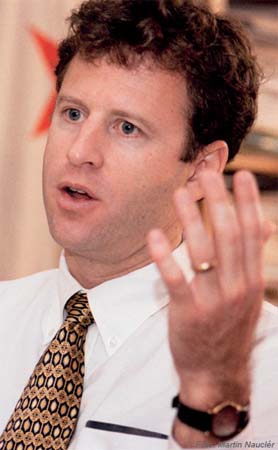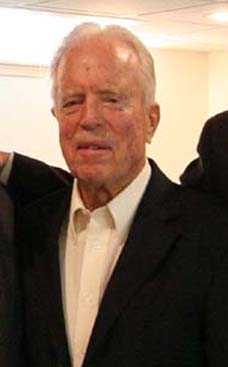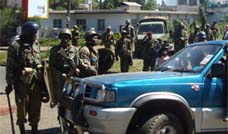
Instead of pursuing a maximalist agenda in Kirkuk and a dream of independence, the Kurds should opt for realism. This means recognizing that if Iraq falls apart, they will be on their own. It also means recognizing that Turkey, with its 15 million Kurds, is very nervous about Kurdish independence. Yet the Kurds of Iraq should also know that a Turkish-Kurdish war is not destiny. In fact, with visionary leadership in Ankara and Irbil, Turkish-Kurdish economic, political and military cooperation -- starting with joint operations against the terrorist Kurdish group, the PKK -- could lead to genuine friendship. After all, Turkey is the most democratic, secular and pro-Western of Iraq's neighbors, attributes that Iraqi Kurdistan shares. Iraq's Kurds have a remarkable future almost within their grasp. But they face a crucial choice: They can attain that future by compromising with their fellow Iraqis, forming a partnership with Turkey and strengthening their bond with the United States. Or they can continue to pursue their own agenda in a way that ultimately shatters their country and destabilizes the broader region. Michael O'Hanlon, a Senior Fellow at the Brookings Institute and a Visiting Lecturer at Princeton University, served as a Peace Corps Volunteer in Congo Kinshasa.
Michael O'Hanlon writes: Time for Kurdish Realism
Time for Kurdish Realism
By Michael O'Hanlon and Omer Taspinar
Saturday, February 9, 2008; Page A15
Increasingly, Iraq's Kurds appear to be interfering with efforts to foster political accommodation among their country's major sectarian groups. Since Iraq's future hinges on establishing such a spirit of compromise, this trend has potentially grave implications for Iraq, its neighbors and the United States.
Two key issues stand out. First, Kurds are beginning to develop oil fields on their territory with foreign investors but with no role for Baghdad, claiming cover under Iraq's 2005 constitution. But the relevant sections of the Iraqi constitution (articles 109 through 112, among others) state that future oil wells will be developed by Iraq's provinces and regions in conjunction with the central government.
Second, Kurds want to reclaim the city of Kirkuk and its surrounding oil fields, which may hold about 15 percent of Iraq's total reserves. Kurds claim, with considerable justification, that many properties in the city were taken from them under Saddam Hussein's "Arabization" programs. Kurds want the homes back. More broadly, they want to control the politics of Kirkuk and environs, up to and including the possibility of Kirkuk and its oil joining the region of Iraqi Kurdistan (which many Kurds hope will ultimately become independent). Because of these ambitions, it has been difficult to hold a referendum on Kirkuk's future; a referendum was supposed to have taken place by the end of 2007.
The Kurds are making a major mistake. They should rethink their approach both out of fairness to the United States, which has given them a chance to help build a post-Hussein Iraq, and in the interests of the Kurds and their neighbors. Baghdad needs a role in developing future oil fields and sharing revenue; Kirkuk needs to remain where it is in Iraq's political system, or perhaps attain a special status. It should not be muscled away into Kurdistan.
It is hard to be sure, but the Kurds seem to believe that if Iraq fails, they will be okay. Under this theory, even if the country splits apart, the United States will stand by its Kurdish friends, establish military bases in Iraqi Kurdistan, and ultimately ease the way toward its independence. Several prominent Americans give occasional endorsement to this dream, further convincing Kurds that it could become reality.
We strongly doubt it. Kurdistan is an inland, mountainous region within the broader Middle East. Its neighbors are Turkey, Syria, Iraq and Iran. Two of the four are nemeses of the United States; all have their issues with Iraq's Kurds; none will be eager to tolerate the kind of American military overflights that would be needed to sustain bases in Kurdistan if Iraq was breaking apart. Nor would they necessarily let Iraq's Kurds export oil through their territories and ports.
Why would the United States even want bases in Kurdistan? If it ever goes to war against Iran, numerous other countries are better positioned, being adjacent to international waterways and airspace. Those countries may not all be as pro-American as Iraq's Kurds, but if the threat posed by Iran grows, some will probably make common cause with the United States.
To be sure, many Americans admire the democratic, prosperous, resilient Kurds. Americans also feel a moral debt after allowing Hussein to oppress the Kurds so many times in the past. But after protecting the Kurds since 1991 and spending hundreds of billions of dollars and thousands of American lives in Iraq over the past five years, that moral debt has been partially repaid. If the Kurds will not now help the United States in stabilizing Iraq, is there really a sense of common purpose, and a set of shared interests, between the two peoples?
Instead of pursuing a maximalist agenda in Kirkuk and a dream of independence, the Kurds should opt for realism. This means recognizing that if Iraq falls apart, they will be on their own. It also means recognizing that Turkey, with its 15 million Kurds, is very nervous about Kurdish independence. Yet the Kurds of Iraq should also know that a Turkish-Kurdish war is not destiny. In fact, with visionary leadership in Ankara and Irbil, Turkish-Kurdish economic, political and military cooperation -- starting with joint operations against the terrorist Kurdish group, the PKK -- could lead to genuine friendship. After all, Turkey is the most democratic, secular and pro-Western of Iraq's neighbors, attributes that Iraqi Kurdistan shares.
Iraq's Kurds have a remarkable future almost within their grasp. But they face a crucial choice: They can attain that future by compromising with their fellow Iraqis, forming a partnership with Turkey and strengthening their bond with the United States. Or they can continue to pursue their own agenda in a way that ultimately shatters their country and destabilizes the broader region.
Michael O'Hanlon is a senior fellow at the Brookings Institution. Omer Taspinar is a nonresident senior fellow at Brookings and a professor at the National War College. The views expressed here are their own.










